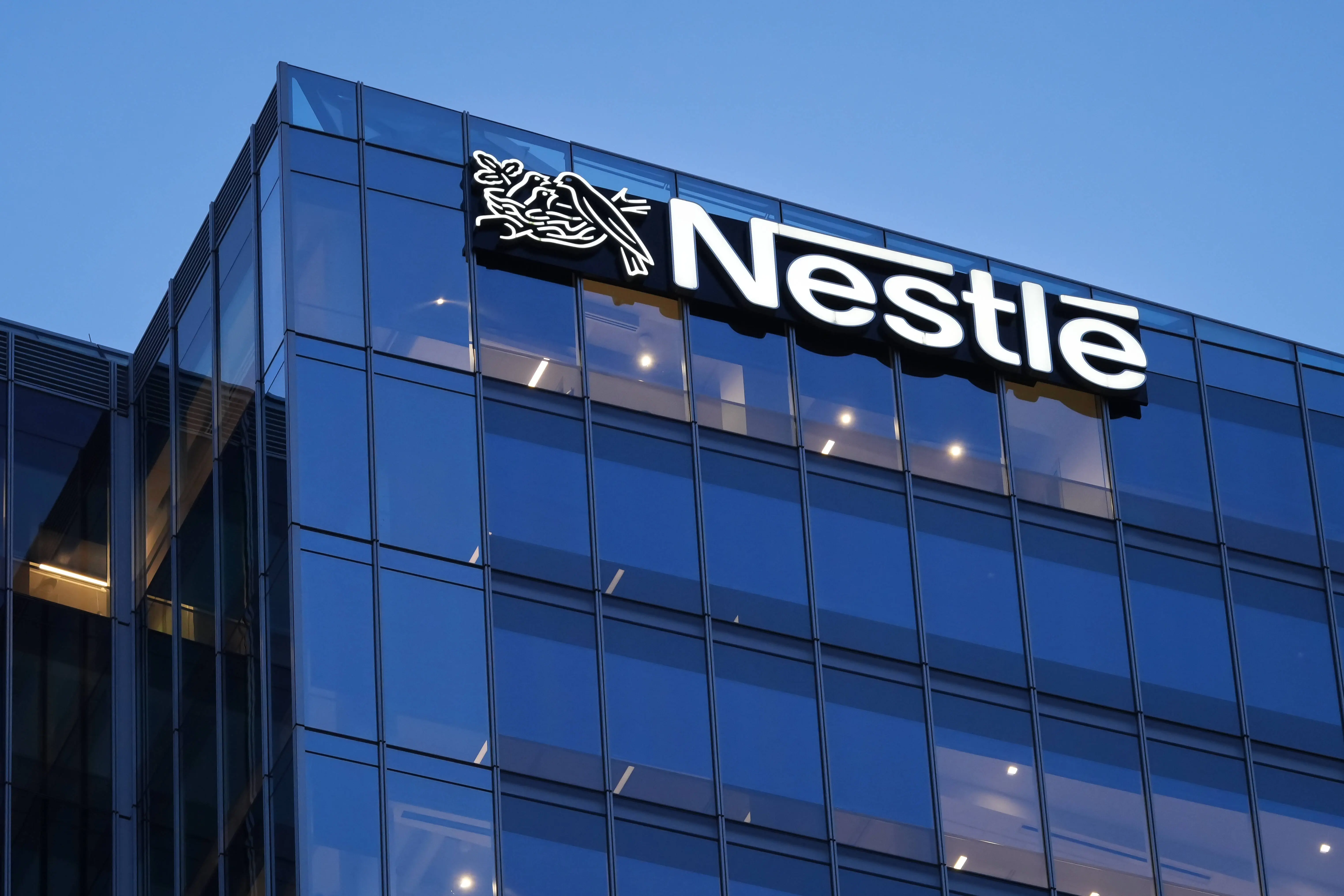Who owns Nestlé? Timeline of the company's origin traced as it fires its CEO Laurent Freixe over undisclosed romantic relationship
-
 ARLINGTON, VA - May 15, 2025: The corporate logo for the Nestlé food company is seen on the top of their U.S. headquarters building on May 16, 2025, in Arlington, VA. (Photo by J. David Ake/Getty Images)
ARLINGTON, VA - May 15, 2025: The corporate logo for the Nestlé food company is seen on the top of their U.S. headquarters building on May 16, 2025, in Arlington, VA. (Photo by J. David Ake/Getty Images)After Astronomer CEO Andy Byron's workplace affair went viral at a Coldplay concert earlier this year, another CEO appears to have suffered a similar fate.
NDTV World reported on Tuesday (September 2) that Nestlé has fired its CEO, Laurent Freixe, following an investigation that revealed him to be involved in an "undisclosed romantic relationship" with a subordinate. Laurent worked with the company for 40 years before his sudden exit.
Nestle has abruptly fired its CEO Laurent Freixe for failing to disclose a romantic relationship with a subordinate - CNBC pic.twitter.com/cEjF3IF7ha
— Evan (@StockMKTNewz) September 2, 2025In a statement explaining his exit from the company, Chairmain Paul Bulcke pointed out that Freixe's conduct was in violation of Nestlé's policies. He added:
"This was a necessary decision. Nestle's values and governance are strong foundations of our company. I thank Laurent for his years of service. We are not changing course on strategy and we will not lose pace on performance."
Since Nestlé is a publicly traded company, its shares belong to multiple organizations, with Nestlé itself being the largest shareholder. Paul Bulcke has been heading the company as its chairman since 2017.
Nestlé didn't waste time in finding Freixe's replacement, confirming that Philipp Navratil - a long-serving executive at the company - will assume the role of its current CEO.
The Nestlé Group was formed in a 1905 merger
The origin point of Nestlé dates back all the way to 1866, when the Anglo-Swiss Condensed Milk company was founded. A year after the company's foundation, Henri Nestlé made a breakthrough in baby food industry.
In 1905, Henri merged his company with Anglo-Swiss, and the merger came to be known as the Nestlé Group. Soon after the merger, Nestlé became a global dairy company during World War I, enjoying a prosperous period that was later called Belle Époque (translating to "Beautiful Age" in English). By the end of the war, the company had established 40 factories.
Following World War II, Nestlé also suffered the impact of the global market crash. To recover from it, the company acquired more products to sell under its flag - namely Maggi soups and seasonings - in 1947.
In the 1970s, Nestlé further diversified its business into cosmetics and pharmaceuticals. It also became the first company to apply the WHO guidelines on breast-milk substitutes (after growing criticism against its infant food marketing).
Nearly two decades after branching out, Nestlé decided to let go of its unprofitable brands, focusing its efforts solely to meet the needs of its health-conscious consumers in the 1980s. It was around this time that the company expanded in the US, Asia, and Eastern Europe.
In recent years, Nestlé has acquired many new businesses in the healthcare sector, including Aimmune, Vital Proteins, and Zenpep. It's also working towards sustainable goals by committing to recyclable packaging and net-zero emissions.
In addition to Nestlé, many other global consumer goods and food companies have been making management reshuffles this year, including other giants like Unilever, Hershey, and Diageo.
TOPICS: Nestlé